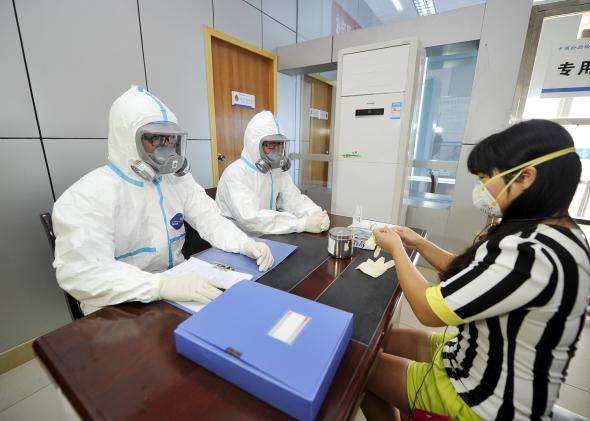Much of the coverage of the ongoing and worsening Ebola outbreak (including my own writing) has focused on how ignorance and paranoia about the disease in Guinea, Liberia, Nigeria, and Sierra Leone has contributed to its spread. This is undoubtedly true. Most Ebola outbreaks are contained much more quickly, and this particular one has been worsened by the fact that many people don’t understand how it spreads (only by direct contact with the bodily fluids of someone currently experiencing symptoms) and are suspicious of health workers.
But I’ve still found something a bit patronizing about the way this narrative has been discussed, because it’s not as if people outside of West Africa have demonstrated a great deal of enlightenment and clearheadedness about this disease.
Today, for instance, the Wall Street Journal reports that the outbreak is hurting the tourist industry in South Africa, more than 3,000 miles from the infected area:
“‘Ebola is in Africa.’ That is what they’re saying,” Mr. Hurter said. He said most of his cancellations have been from Asian clients, who make up about 60 percent of his business.
Korea Airlines has suspended flights to Kenya, also thousands of miles from the outbreak.
Here in the United States, a recent Harvard School of Public Health poll found that “four in ten (39 percent) adults in the U.S. are concerned that there will be a large outbreak in the U.S., and a quarter (26 percent) are concerned that they or someone in their immediate family may get sick with Ebola over the next year.” Public health experts say that even if an infected person did travel to the United States, the risk of it spreading is extremely low.
And those calling the CDC in alarm over the prospect of American health workers being brought back to the U.S. for treatment might be surprised to learn that Ebola has already been in the United States in controlled environments for years.
As Kent State epidemiologist Tara Smith recently noted, movies like Outbreak and books like The Hot Zone have given the public some inaccurate ideas about Ebola. It’s commonly believed, for instance, that Ebola liquefies victims’ internal organs and causes them to bleed out in excruciating fashion. That’s not what happens:
More commonly, patients look weak and are very ill. There may be blood in their vomit or diarrhea, or occasionally from their gums or nose. Dehydration is a big problem, and in some cases getting intravenous fluids may be the difference between life and death. But blood does not typically “pour” from a person as their skin tears off at the touch, as The Hot Zone suggested.
It’s also commonly believed that nearly everyone who gets Ebola dies. In this outbreak, the fatality rate has been a little more than 55 percent, though that could increase. That’s extremely high, though the disease is not necessarily a death sentence if treated properly.
None of this is to say that we shouldn’t be worried about Ebola. (It’s possible we’re not nearly worried enough about it.) But those of us in countries that are not yet significantly effected shouldn’t fool ourselves into thinking we’re that much more informed and enlightened.
